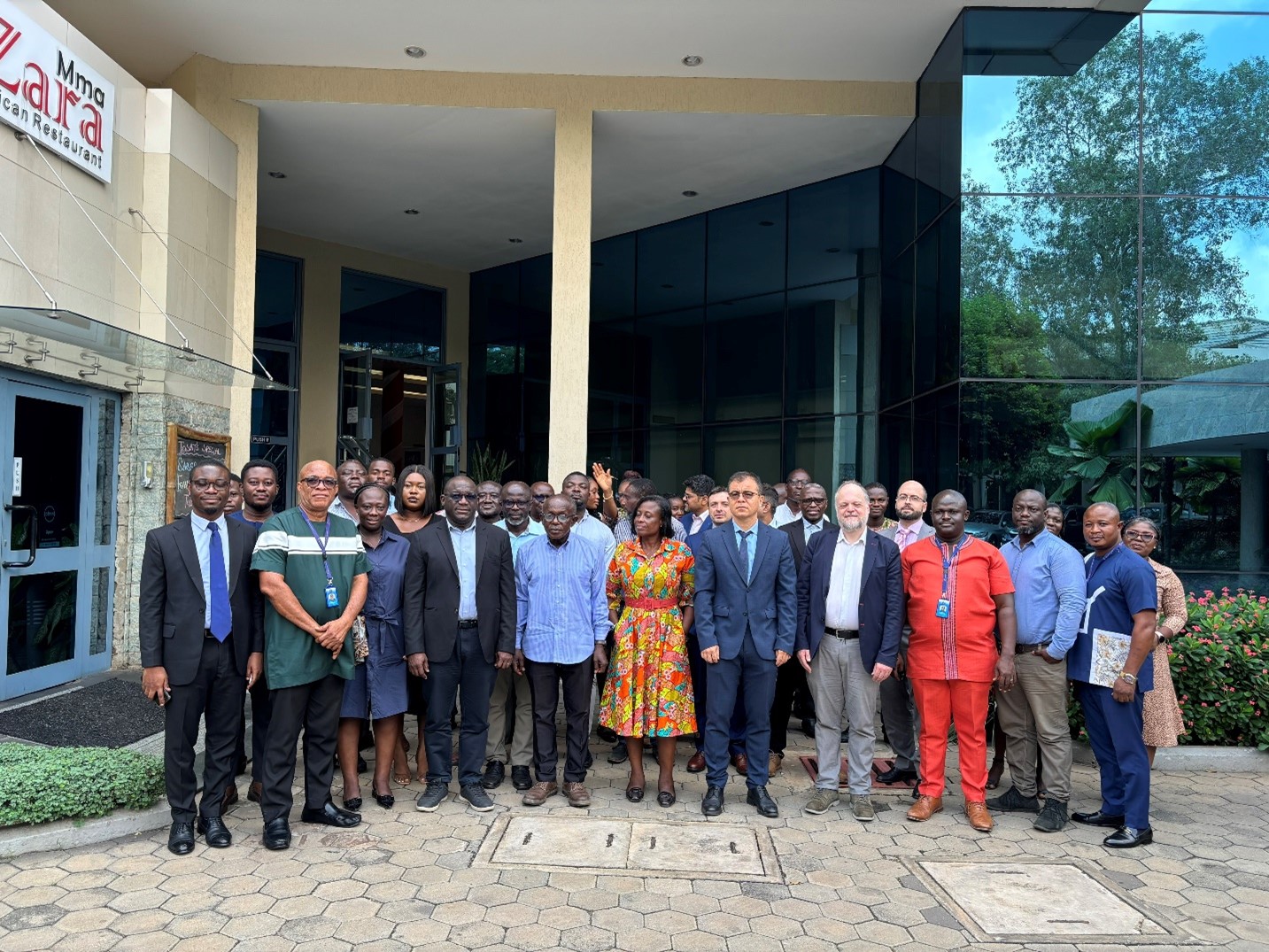The United Nations Development Programme (UNDP) and UNEP’s United for Efficiency in partnership with the Governments of Ghana and Nigeria, have launched the implementation of the project titled 'Abating Greenhouse Gas Emissions From Obsolete RAC Equipment In Ghana and Nigeria' (AGORA)
With a total financing of EURO 2.4 million from the French Facility for Global Environment (FFEM) to be implemented from 2024 to 2027, the AGORA project will aim to transform the Refrigeration and Air Conditioning (RAC) market by promoting appliances that are energy-efficient and use refrigerants with no ozone depleting and low global warming potential (i.e. R290 for air conditioners).
The project shall be implemented together with the National Ozone Units and Energy Commissions of both Ghana and Nigeria to create the enabling environment for transition towards the adoption of sustainable cooling technologies in the Ghana and Nigeria markets. Specifically, the project shall aim to achieve the following objectives:
- Establish or strengthen policy, regulation and partnerships to ensure the success of RAC equipment replacement schemes that result in the avoidance of GHG emissions at the end of the equipment's life in a circular fashion
- Transform the RAC market through ambitious replacement programmes, creating a fleet of energy-efficient domestic equipment using low GWP refrigerants
- Initiate market transformation in the air conditioning sector in Africa, by promoting certain new technology developments (notably R290-based domestic air conditioning) that are still not widely used despite their maturity.
Ensuring the development of effective financial instruments will be mainstreamed for the long-term success of this sustainable cooling initiative. While the project contributes to the UNDP Regional Programme for Africa, it builds on achievements such as the National Cooling Action Plans of Ghana and Nigeria, as well as the Ecofridges project.
At the launch of the project in Nigeria organized on 25 November 2024, the Government of Nigeria, represented by the National Ozone Unit and the Energy Commission, highlighted the importance of the project to the Nigerian economy and the opportunities to be created through the transformation of the Nigeria’s refrigeration sector to adopt sustainable technologies in line with the Kigali Amendment of the Montreal Protocol.

Engr. Idris Abdullahi, Director, National Ozone Officer for Nigeria, Federal Ministry of Environment, speaking to media at the AGORA launch in Nigeria. Photo credit, Nigeria Energy Commission
In Ghana, the project launch on 28 November 2024 also mobilized key actors from industry, government, civil society, media and actors in the refrigeration and cooling value chain to discuss the objectives of the project and roadmap for co-implementation to ensure sustainability and national ownership.
Speaking at the event, Sukhrob Khoshmukhamedov, UNDP Deputy Resident Representative in Ghana commended the strong collaboration between Government and the United Nations, and encouraged continuous collaboration through the AGORA project to create a pathway for inclusive and sustainable development in alignment with the United Nations Sustainable Development Goals (SDGs): particularly SDG 7 – Affordable and Clean Energy; and SDG 13 – Climate Action.

Group photo of participants at the project launch in Ghana. Photo credit: UNDP Ghana
“The AGORA project represents a key initiative of UNDP designed to facilitate transformation of the cooling technology in Africa’s market, guided by UNDP’s Sustainable Cooling Offer. It is an integrated approach to phase down the hydrofluorocarbons (HFCs) in air conditioners required by the Kigali Amendment of the Montreal Protocol and enhance efficiency simultaneously. We look forward to working closely with all international and local partners to deliver expected results.” Xiaofang Zhou - Director, UNDP Chemicals and Waste Hub.
“UNEP United for Efficiency is proud to continue its work to mainstream sustainable cooling in West Africa alongside our partners, scaling-up our regulatory and voluntary financial mechanisms work based on the proven Model Regulation Guidelines to help ensure top performing products are availed to consumers at accessible prices.” - Brian Holuj, Programme Management Officer United for Efficiency (U4E).
“The FFEM is excited about the prospects of the AGORA project in enabling the uptake of sustainable cooling technologies in the West African market. It represents a very interesting and demonstrative initiative to pilot-test innovative activities bringing many environmental co-benefits and contributing to the achievement of major multilateral environmental agreements, in particular the Paris Agreement, the Montreal Protocol and the Basel Convention” - Diane Ménard, Project Manager, Pollution – Circular Economy – Ozone, French Facility for Global Environment (FFEM).

 Locations
Locations



